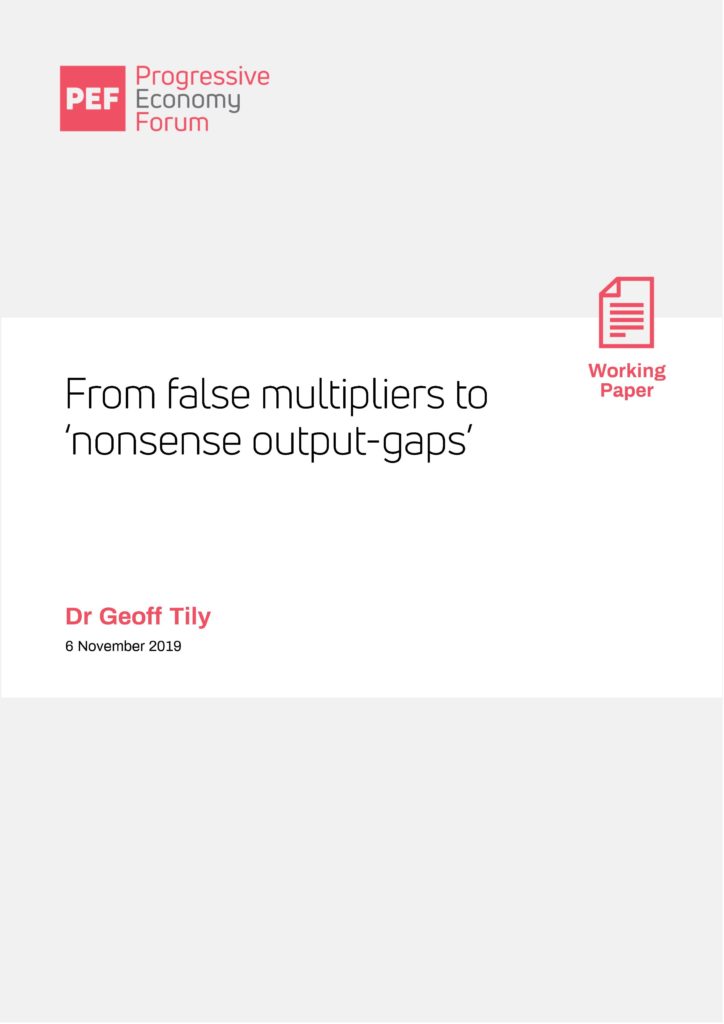The risk of renewed recession means a need for a revised approach to fiscal policies. But as the Institute for Fiscal Studies’ recent commentary about the spending review illustrates, austerity – or ‘household budget’ – thinking still dominates much public debate. The purpose of this paper is to restate the macroeconomic approach to fiscal policy, so that the public finances depend on the impact of government spending on the economy.
The demand approach to government expenditure depends on the theory of the multiplier. A very low multiplier allowed the OBR (in 2010) to judge cuts in spending will not damage economic growth. But this has not been the case in practice: across all advanced economies austerity policies have gravely damaged economic growth. The scale of the damage points to a much higher multiplier: a figure of 1.5 for the UK is realistic and within the range of the IMF’s 2012 reassessment.
Rather than follow suit and revise their analysis of demand, the OBR continued to attribute the weakness of the economy to the supply side. While the productivity puzzle has not been solved, their judgment is simply that the financial crisis had a more severe impact than first thought (later emphasis switched to the impact of the referendum result).
These judgements mean the OBR – along with most other forecasters, not least the Bank of England – have stuck to their original view that the output-gap would close very quickly (by 2015). Essentially the same arguments have been deployed by policymakers across the world; they have provoked a backlash against ‘nonsense output-gaps’.
Rather than confirm supply-side weakness, productivity statistics since the crisis show the effects of austerity not the cause. Low outcomes in the UK are the result of the labour market adjusting on price (wages) rather than quantity (employment numbers) to weak aggregate demand. The prolonged absence of inflation is also at odds with supply-side defect.
Without a changed view of the output-gap the same course is relentlessly imposed. Moreover, repeatedly failed efforts to tighten monetary policy not only support the demand view but also point at fundamental vulnerabilities from private debt that remain unresolved.
Given assumptions on these critical policy variables are deeply embedded across the most important policymaking institutions, impartial arbitration may require a public commission.

